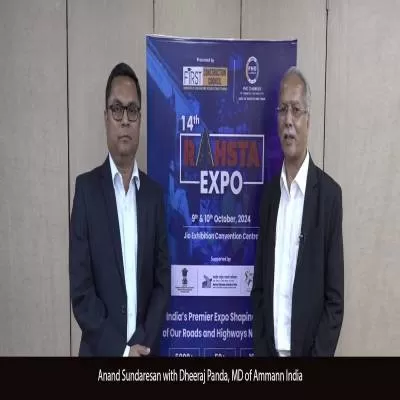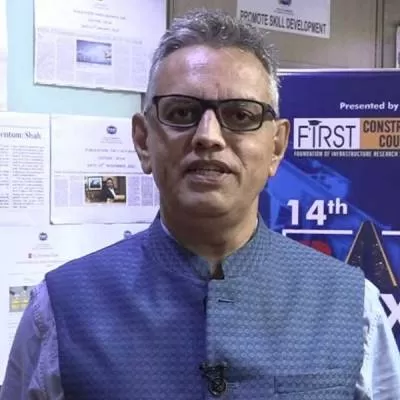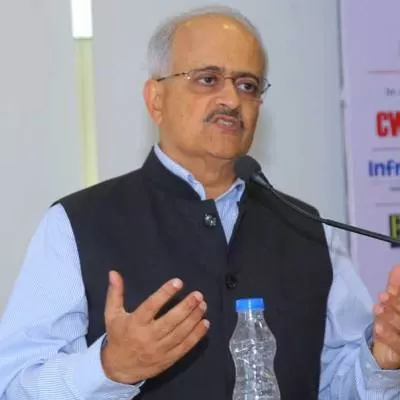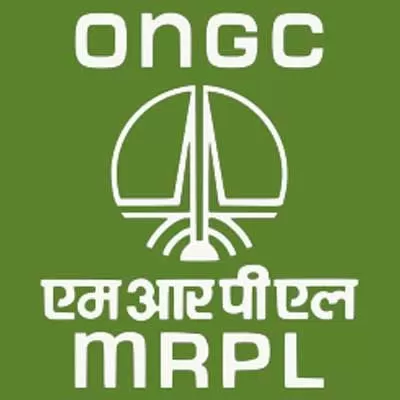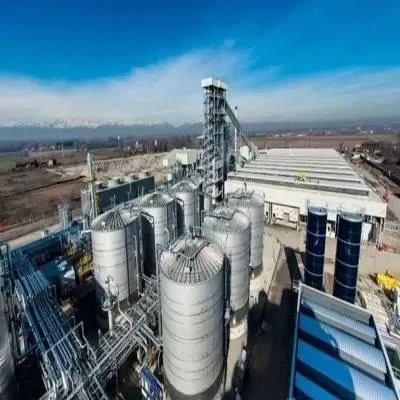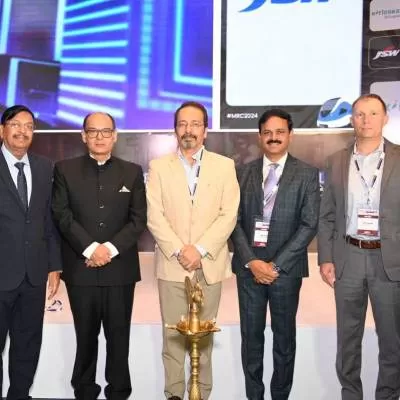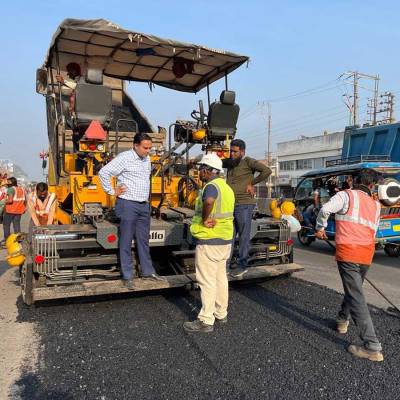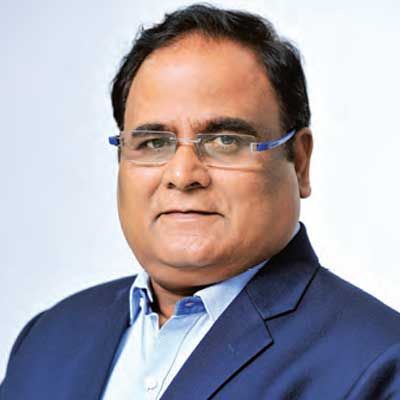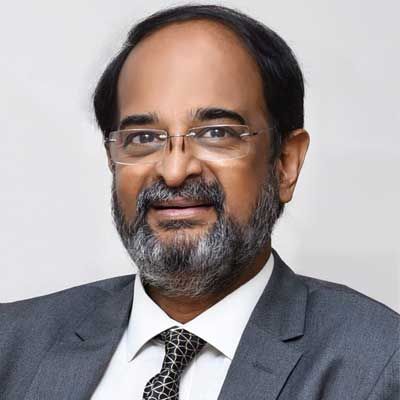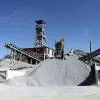- Home
- Infrastructure Energy
- OIL & GAS
- We are targeting refining, petrochemical, LNG and offshore projects
We are targeting refining, petrochemical, LNG and offshore projects
What are the challenges facing the oil and gas and chemical sectors in India today?
The oil and gas business is expanding with unprecedented opportunities and challenges. The EPC mode faces many challenges: reduction in cycle times for project completion; talent sourcing, management and retention; access to resources including raw materials; increasing cost of services; increasing need for innovative technologies; shrinking of available plot area for projects and selection of partners; delivery of supplies in time; paucity of large construction contractors; and contractual conditions not in tune with international practices. Today, the role of the EPC contractor encompasses location issues, sustainability and environmental concerns, which need to be considered during the bidding stage.
How involved is the government in oil and gas projects?
The hydrocarbon sector will continue to play a vital role in the economic growth of India. The government plans to increase refining capacity from 190 mmtpa to 230 mmtpa in the next few years and improve the quality of products. Recently, it has announced its consent for setting up a 9 mmtpa refinery in Rajasthan. Bharat Petroleum Corporation Ltd's (BPCL) Kochi refinery is undergoing expansion from 9.5 mmtpa and BPCL Mumbai is also undergoing modernisation. For both projects, we have been awarded a heater package for the crude distillation unit and vacuum distillation unit on EPC basis. The LNG sector has also received a huge boost from the government with various terminals being set up in Gujarat. At present, Technip's Delhi operating centre is bidding for these projects. Floating LNG (FLNG) is gaining momentum worldwide and Technip is the forerunner to execute FLNG projects. Our Chennai operating centre is focussing on this and, in coming years, we expect this to be an emerging field in India. Exploration of untapped oil and gas reserves along with coal bed methane blocks will boost the upstream business. We have recently been awarded the offshore Heera Redevelopment HRD process platform project by ONGC that includes Technip's proprietary float-over technology.
The fertiliser sector is waiting for implementation of a favourable policy from the government for expansion plans and we foresee good business opportunities in this area.
Petrochemicals is another area where we expect growth. Technip is executing a world-scale ethylene cracker project for Reliance, Jamnagar, and a world-scale PTA (purified terephthalic acid) plant in Mangalore for JBF Petrochemicals.
Please elaborate on the design and engineering process of your projects.
Technip provides its clients with a full range of services from licensing, FEED, basic engineering and detailed engineering to full EPC projects. High-value process engineering is a core competence. Every project is executed by a competent and committed professional team aided by state-of-the-art technologies and software. We have instituted a technical quality review system to check compliance to correctness of input data, all required codes and standards, validation of design methods and optimisation of design and value engineering. In fact, we are currently executing a 36,000 tpa hydrogen plant for Hindustan Petroleum Corporation Ltd in Visakhapatnam, where our scope includes licensing of technology, engineering, procurement, construction and commissioning.
What safety measures do you adopt during the execution of your projects?
Owing to the nature of the work, oil and gas projects require greater safety precautions and HSE (health, safety and environment) is of paramount importance to us. We have developed our own HSE leadership development programme, 'PULSE', which is deploy-ed for all Technip projects. We also deputed our personnel to study our international projects in the Middle East and have implemented enhanced safety practices on our sites in India.
How do you deal with sudden price escalations in your projects?
Changing market dynamics coupled with fluctuating prices of raw materials are a key challenge. We have a global procurement cell that trends the prices of all important raw materials and equipment and are thus able to foresee price changes to an extent. Proper trending studies, strategic alliances with suppliers and linking the price to variations in the prices of metals like nickel, copper, etc, are some ways to mitigate the impact.
Highlight the of technical and skill upgradation is provided to your employees?
We have developed training programmes and seminars (external as well as internal) in line with the goal of 'HR without borders to achieve common standards, effective and transparent processes for all employees, which contributes towards their efficiency. In addition, electronic database management system coupled with workflow management systems and operational excellence also help us to deliver large complex projects with an optimal utilisation of resources.
Also, how do you ensure the used of world-class technologies?
We have worked in almost all possible units in the hydrocarbon industry involving technology for various licensors worldwide. Also, the recent acquisition of Stone & Webster (of the Shaw Group) has enabled Technip to enhance its position as a technology provider to the refining and petrochemical industries. The hydrogen generation unit being executed for HPCL in Visakhapatnam is based on our own hydrogen technology from our office in The Netherlands, while the ROGC project for Reliance is based on our own ethylene technology from France.
The government plans to review its oil and gas exploration contracts from profit sharing to revenue sharing. How will this affect the sector in India?
This will ensure that as the exploration contractor earns more, the government gets progressively higher revenue, and will also safeguard its interest in case of a windfall arising from a price surge or a surprise geological find. However, this not going to affect EPC/EPCIC contractors like us and may lead to more favourable response to the next New Exploration Licensing Policy (NELP) rounds.
The government recently promised foreign investors approval of oil and gas projects in 30 days...
We believe this will encourage foreign investment in the oil and gas sector. At the moment, clearance by multiple agencies reduces the efficiency of the system and it might be beneficial to coordinate the entire approval system under one authority.
Many European companies are currently investing in the Indian oil and gas sector. How will this benefit the industry?
Technip itself is a European multinational with a substantial interest in the Indian oil and gas sector. The entrance of other multinationals into India will bring about operational change in the industry related to risk assessment, HSE practices and delivery to large projects. In certain far Eastern countries like Korea and China, the capacities built up are very large, thereby allowing them to optimise on costs and cycle times. With the entry of foreign contractors, the market has also become more competitive and provides Indian clients with greater choice and better prices.
Where do you see the sector headed in the future?
Reliable, affordable and accessible energy is the key to economic growth; it is imperative that growing economies like India are recognised as key drivers for the oil and gas business in the world. Committed support from the government thus gains greater importance. Within the oil and gas industry, we are targeting refining, petrochemical, LNG and offshore projects. Various expansion projects coupled with newly announced projects by the government are our targets. Also, the LNG industry is opening up and we see many terminal projects coming up. In addition, we foresee further investments in offshore to enhance oil and gas production. We also expect interesting opportunities in mining and metals, nuclear, solar and wind sectors. Our tag line, 'Take it Further', aptly defines the aspiration of all our business models; we are developing our resource and competencies to deliver world-class projects for our clients in India.
Fact sheet
Year of establishment: 1971 (Technip KTI)
Top management (in India): Samik Mukherjee, Country Head & Managing Director, Technip India
No. of employees: 2,600
Centres of operation: Delhi, Mumbai and Chennai
Ongoing projects: DHDT Unit at Vizag, Andhra Pradesh; HGU on LEPCC basis at Vizag, Andhra Pradesh; EPC for CDU / VDU Heater at Mumbai and Kochi; Coal Gasification Plant at Angul; FCCU & PRU revamp project at Mathura; Butene-1 Plant of Dahej Petrochemical Complex at Dahej, Gujarat; Refinery Offgas Cracker unit at Jamnagar, Gujarat; Heera Redevelopment process platform at Mumbai, Maharashtra; ISBL (Inside Battery Limit) and the OSBL (Outside Battery Limit) of the unit at Mangalore, Karnataka; Double walled Ethylene storage tanks and associated system at Dahej, Gujarat; Ammonia plant at Tuticorin, Tamil Nadu.
Suggestions on contractors to be covered? Write in at feedback@ASAPPmedia.com
With three operating centres in Delhi, Mumbai and Chennai, Technip has established itself as a technology-driven and environment and safety conscious EPC contractor in India serving the energy sector globally. Samik Mukherjee, Country Head & Managing Director, Technip India, shares more about the company's ongoing projects and future plans with CW. What are the challenges facing the oil and gas and chemical sectors in India today? The oil and gas business is expanding with unprecedented opportunities and challenges. The EPC mode faces many challenges: reduction in cycle times for project completion; talent sourcing, management and retention; access to resources including raw materials; increasing cost of services; increasing need for innovative technologies; shrinking of available plot area for projects and selection of partners; delivery of supplies in time; paucity of large construction contractors; and contractual conditions not in tune with international practices. Today, the role of the EPC contractor encompasses location issues, sustainability and environmental concerns, which need to be considered during the bidding stage. How involved is the government in oil and gas projects? The hydrocarbon sector will continue to play a vital role in the economic growth of India. The government plans to increase refining capacity from 190 mmtpa to 230 mmtpa in the next few years and improve the quality of products. Recently, it has announced its consent for setting up a 9 mmtpa refinery in Rajasthan. Bharat Petroleum Corporation Ltd's (BPCL) Kochi refinery is undergoing expansion from 9.5 mmtpa and BPCL Mumbai is also undergoing modernisation. For both projects, we have been awarded a heater package for the crude distillation unit and vacuum distillation unit on EPC basis. The LNG sector has also received a huge boost from the government with various terminals being set up in Gujarat. At present, Technip's Delhi operating centre is bidding for these projects. Floating LNG (FLNG) is gaining momentum worldwide and Technip is the forerunner to execute FLNG projects. Our Chennai operating centre is focussing on this and, in coming years, we expect this to be an emerging field in India. Exploration of untapped oil and gas reserves along with coal bed methane blocks will boost the upstream business. We have recently been awarded the offshore Heera Redevelopment HRD process platform project by ONGC that includes Technip's proprietary float-over technology. The fertiliser sector is waiting for implementation of a favourable policy from the government for expansion plans and we foresee good business opportunities in this area. Petrochemicals is another area where we expect growth. Technip is executing a world-scale ethylene cracker project for Reliance, Jamnagar, and a world-scale PTA (purified terephthalic acid) plant in Mangalore for JBF Petrochemicals. Please elaborate on the design and engineering process of your projects. Technip provides its clients with a full range of services from licensing, FEED, basic engineering and detailed engineering to full EPC projects. High-value process engineering is a core competence. Every project is executed by a competent and committed professional team aided by state-of-the-art technologies and software. We have instituted a technical quality review system to check compliance to correctness of input data, all required codes and standards, validation of design methods and optimisation of design and value engineering. In fact, we are currently executing a 36,000 tpa hydrogen plant for Hindustan Petroleum Corporation Ltd in Visakhapatnam, where our scope includes licensing of technology, engineering, procurement, construction and commissioning. What safety measures do you adopt during the execution of your projects? Owing to the nature of the work, oil and gas projects require greater safety precautions and HSE (health, safety and environment) is of paramount importance to us. We have developed our own HSE leadership development programme, 'PULSE', which is deploy-ed for all Technip projects. We also deputed our personnel to study our international projects in the Middle East and have implemented enhanced safety practices on our sites in India. How do you deal with sudden price escalations in your projects? Changing market dynamics coupled with fluctuating prices of raw materials are a key challenge. We have a global procurement cell that trends the prices of all important raw materials and equipment and are thus able to foresee price changes to an extent. Proper trending studies, strategic alliances with suppliers and linking the price to variations in the prices of metals like nickel, copper, etc, are some ways to mitigate the impact. Highlight the of technical and skill upgradation is provided to your employees? We have developed training programmes and seminars (external as well as internal) in line with the goal of 'HR without borders to achieve common standards, effective and transparent processes for all employees, which contributes towards their efficiency. In addition, electronic database management system coupled with workflow management systems and operational excellence also help us to deliver large complex projects with an optimal utilisation of resources. Also, how do you ensure the used of world-class technologies? We have worked in almost all possible units in the hydrocarbon industry involving technology for various licensors worldwide. Also, the recent acquisition of Stone & Webster (of the Shaw Group) has enabled Technip to enhance its position as a technology provider to the refining and petrochemical industries. The hydrogen generation unit being executed for HPCL in Visakhapatnam is based on our own hydrogen technology from our office in The Netherlands, while the ROGC project for Reliance is based on our own ethylene technology from France. The government plans to review its oil and gas exploration contracts from profit sharing to revenue sharing. How will this affect the sector in India? This will ensure that as the exploration contractor earns more, the government gets progressively higher revenue, and will also safeguard its interest in case of a windfall arising from a price surge or a surprise geological find. However, this not going to affect EPC/EPCIC contractors like us and may lead to more favourable response to the next New Exploration Licensing Policy (NELP) rounds. The government recently promised foreign investors approval of oil and gas projects in 30 days... We believe this will encourage foreign investment in the oil and gas sector. At the moment, clearance by multiple agencies reduces the efficiency of the system and it might be beneficial to coordinate the entire approval system under one authority. Many European companies are currently investing in the Indian oil and gas sector. How will this benefit the industry? Technip itself is a European multinational with a substantial interest in the Indian oil and gas sector. The entrance of other multinationals into India will bring about operational change in the industry related to risk assessment, HSE practices and delivery to large projects. In certain far Eastern countries like Korea and China, the capacities built up are very large, thereby allowing them to optimise on costs and cycle times. With the entry of foreign contractors, the market has also become more competitive and provides Indian clients with greater choice and better prices. Where do you see the sector headed in the future? Reliable, affordable and accessible energy is the key to economic growth; it is imperative that growing economies like India are recognised as key drivers for the oil and gas business in the world. Committed support from the government thus gains greater importance. Within the oil and gas industry, we are targeting refining, petrochemical, LNG and offshore projects. Various expansion projects coupled with newly announced projects by the government are our targets. Also, the LNG industry is opening up and we see many terminal projects coming up. In addition, we foresee further investments in offshore to enhance oil and gas production. We also expect interesting opportunities in mining and metals, nuclear, solar and wind sectors. Our tag line, 'Take it Further', aptly defines the aspiration of all our business models; we are developing our resource and competencies to deliver world-class projects for our clients in India. Fact sheet Year of establishment: 1971 (Technip KTI) Top management (in India): Samik Mukherjee, Country Head & Managing Director, Technip India No. of employees: 2,600 Centres of operation: Delhi, Mumbai and Chennai Ongoing projects: DHDT Unit at Vizag, Andhra Pradesh; HGU on LEPCC basis at Vizag, Andhra Pradesh; EPC for CDU / VDU Heater at Mumbai and Kochi; Coal Gasification Plant at Angul; FCCU & PRU revamp project at Mathura; Butene-1 Plant of Dahej Petrochemical Complex at Dahej, Gujarat; Refinery Offgas Cracker unit at Jamnagar, Gujarat; Heera Redevelopment process platform at Mumbai, Maharashtra; ISBL (Inside Battery Limit) and the OSBL (Outside Battery Limit) of the unit at Mangalore, Karnataka; Double walled Ethylene storage tanks and associated system at Dahej, Gujarat; Ammonia plant at Tuticorin, Tamil Nadu. Suggestions on contractors to be covered? Write in at feedback@ASAPPmedia.com


